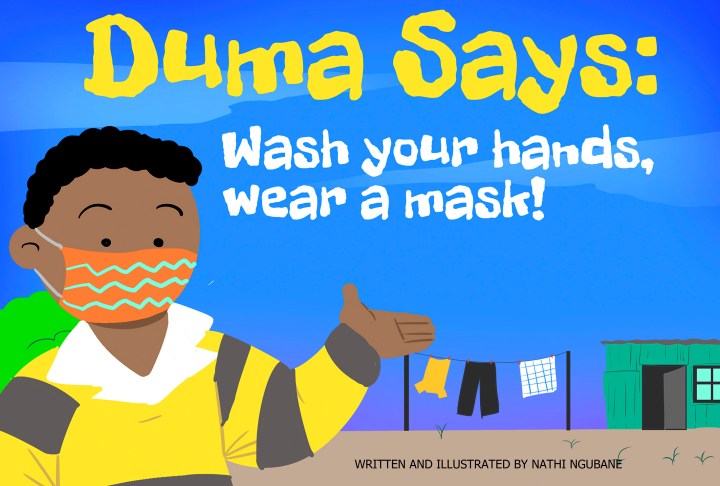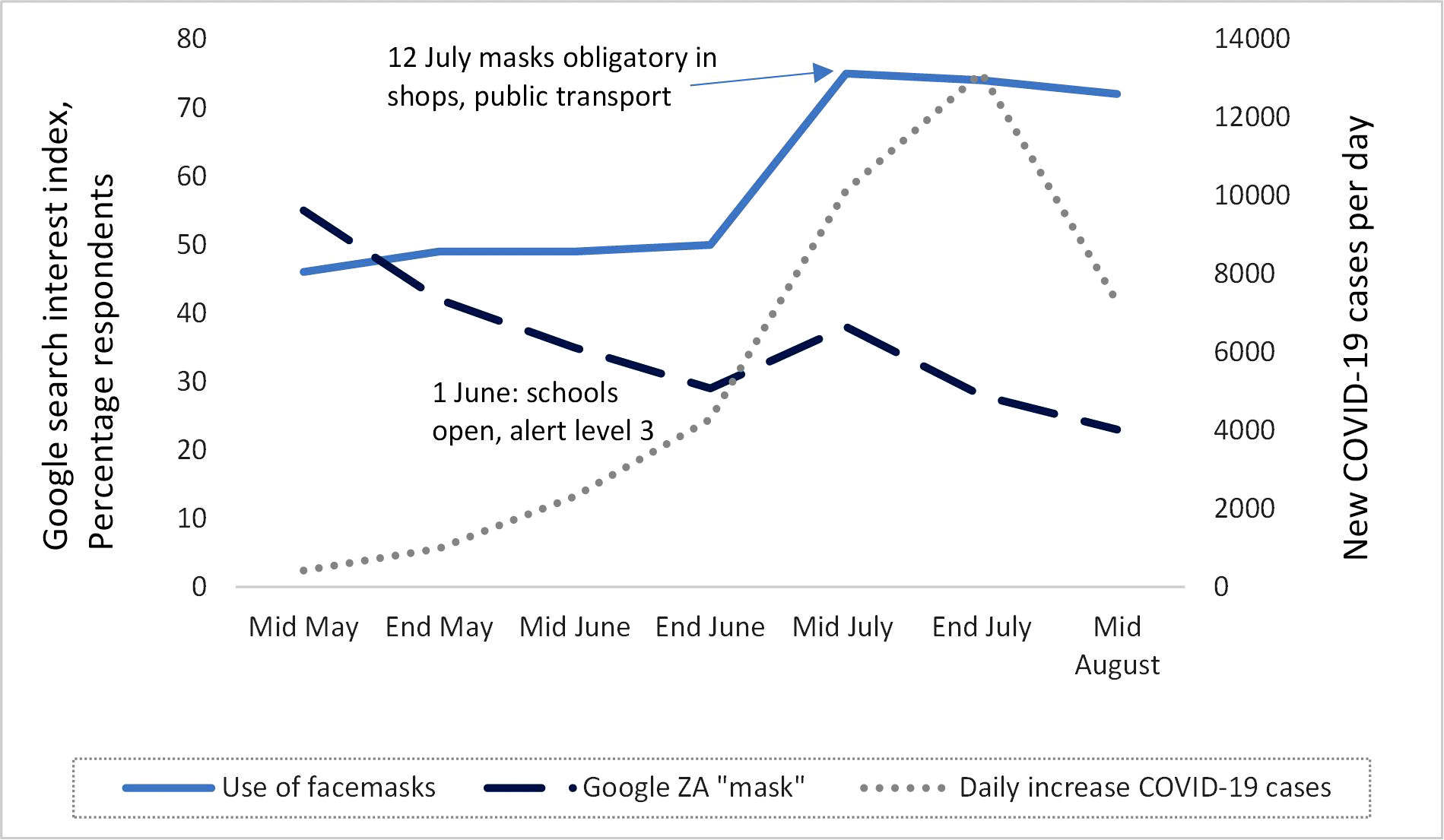NIDS-CRAM SURVEY OP-ED
Covid-19 is not over – wear a mask and keep your distance

South Africans have shown very high compliance when it comes to the wearing of masks, but with life returning to a semblance of normality, our exposure and risk will increasingly come from socialising with friends and family.
Our recently released research results show that there has been a rapid rise in mask-wearing from May to the middle of August, with a discernible pivot in the two-week period when masks became obligatory.
The research shows we have made rapid progress in expanding mask-wearing, and from this analysis it would appear that the introduction of legal enforcement for masks on 12 July was an important shift that helped to encourage public compliance with these precautionary measures.
 It is also encouraging to see that beliefs and behaviour tend to be anchored in sound precautionary measures such as staying at home, physical distancing and mask-wearing. We find no evidence that there is widespread reliance on measures with no scientific basis, such as eating garlic or drinking hot drinks.
It is also encouraging to see that beliefs and behaviour tend to be anchored in sound precautionary measures such as staying at home, physical distancing and mask-wearing. We find no evidence that there is widespread reliance on measures with no scientific basis, such as eating garlic or drinking hot drinks.
Between 1% and 2% of respondents said they were protecting themselves against Covid-19 by drinking hot lemon water and eating garlic. Of those who thought they were unlikely to contract the coronavirus, fewer than 1% of respondents said they did not believe the coronavirus existed, and fewer than 0.5% of respondents said they did not think the coronavirus would affect them.
In general, we found South Africans had high levels of agency and empowerment, with 87% of respondents saying they believed they could avoid getting the virus.
These are accomplishments to celebrate. Behaviour change is never simple – especially if the benefits from this change are not immediate and visceral and, more often than not, accrue to others and not to the person making the sacrifice.
It is, however, acknowledged that the biggest challenge is often sustaining such behaviour change as we grow accustomed to the risk. This may be the biggest challenge for the government – ensuring that we do not slip back into old habits as the curve flattens and the panic subsides; as we become used to living alongside the pandemic.
Over the past few days, I have frequently heard that Covid is over. With growing evidence of an economic recovery, and an easing of restrictions under Level 1, it does feel like we have seen the worst of it. However, the trajectory of epidemics and pandemics is not dependent on how we feel about them, and the same is true for Covid.
Navigating Covid precautions is less complicated in a public space, where regulations oblige us to wear masks. But with life returning to a semblance of normality, our exposure and risk will increasingly come from socialising with friends and family – in this space, wearing masks is far more complicated to navigate because it is private and cannot be monitored and regulated.
As we have seen from what is happening in the US, Spain and the UK, the war against the coronavirus is far from over. We know that the virus kills, we know that another lockdown will be devastating to our society and our economy and we know that masks work. The pandemic will become less visible and, under such circumstances, more difficult to motivate the daily sacrifices involved in the use of nonpharmaceutical interventions.
To avoid a second surge amid these challenges, we need to enhance and sustain clear, concise, consistent and targeted communication and messaging. The behavioural literature shows that compliance is affected by a clear vision of why we make sacrifices. Messages based on fear rarely work. We need to anchor our messages about sustained precautionary measures in hope and altruism.
We risk a lot if we give up the fight now. DM/MC
Ronelle Burger is a professor of economics at Stellenbosch University and the health lead of the Coronavirus Rapid Mobile Survey.
"Information pertaining to Covid-19, vaccines, how to control the spread of the virus and potential treatments is ever-changing. Under the South African Disaster Management Act Regulation 11(5)(c) it is prohibited to publish information through any medium with the intention to deceive people on government measures to address COVID-19. We are therefore disabling the comment section on this article in order to protect both the commenting member and ourselves from potential liability. Should you have additional information that you think we should know, please email [email protected]"





 Become an Insider
Become an Insider
A professor of economics giving public health advice? The trajectory of the epidemic has been similar in most countries/regions, independent of generalised masking. I am unable to find a scientifically sound study(RCT) that shows convincing evidence of general mask wearing making any impact on the Covid epidemic or any prior epidemic.